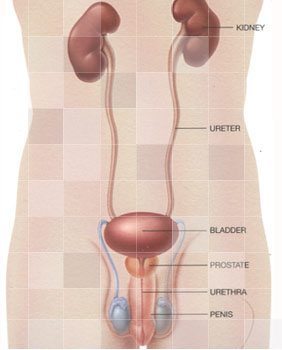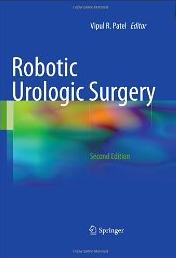As a discipline that involves the study of many organs and physiological systems, urology can be broken down into subdisciplines. At larger centers and especially university hospitals, many urologists specialize within a particular subdiscipline of urology.

1- Robotic assited laparoscopic surgery
Robotic assited laparoscopic surgery of the prostate, kidney, bladder and ureter is an advanced form of laparoscopy in which the surgeon directs the robot arms to perform the surgical procedures.
Robotic-assisted surgery, a type of minimally invasive surgery (MIS), uses surgical robotic equipment, which imitates surgical movements. MIS procedures allow surgeons to operate through small ports rather than large incisions, resulting in shorter recovery times, fewer complications and reduced hospital stays. Surgical robotics combines minimally invasive techniques with highly advanced clinical technology.
How does Robotic-Assisted Surgery work?
The computer-enhanced minimally invasive surgical system consists of three components that provide:1. A 3-D view of the surgical field, including depth of field, magnification and high resolution.
2. Robotic instruments that are designed to mimic the movement of the human hands, wrists and fingers, allowing an extensive range of motion and more precision.
3. Master controls that allow the surgeon to manipulate the instruments, translating the surgeon's natural hand and wrist movements into corresponding, precise and scaled robotic movements.
Robotic assisted Prostatectomy offers patients many potential benefits over traditional open surgery in these three areas including:
Better Cancer Control
Studies show that, compared to open surgery, experienced da Vinci surgeons achieve better cancer control - lower positive margin rates. Positive margin rates are a measure of cancer cells left behind – lower is better.Faster Return of Erectile Function
Studies show patients who are potent prior to surgery experience a faster return of erectile function than patients who have open surgery.Better Chance for Return of Urinary Continence Recent studies show more patients have full return of urinary continence within 6 months as compared to patients having open surgery.Also Advantages of Robotic-Assisted Surgery include:
• Shorter hospital stay• Less blood loss
• Less need for blood transfusion
• Lower risk of complications
• Lower risk of wound infection
• Fewer days with catheter
• Less pain Faster recovery and return to normal activities
Dr. Nadim Ayoub has a fellowship training and several years of experience in Laparoscopic urologic surgery and is a DaVinci certified surgeon in Robotic assited laparoscopic surgery.
Watch Dr. Nadim Ayoub perform the First Robotic Urology Surgeries in Beirut, Lebanon


